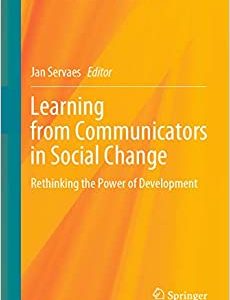This text is organized into clusters that center on major topics in social science research. The first cluster introduces concepts that are fundamental to all aspects and steps of the research process. These concepts include relationality, identity, ethics, epistemology, validity, and the sociopolitical context within which research occurs. The second and third clusters focus on data and inference. These clusters engage concretely with steps of the research process, including decisions about designing research, generating data, making inferences. Throughout the chapters, Pause and Reflect open-ended questions provide readers with the space for further inquiry into research concepts and how they apply to life. Research Scenario features in each chapter offer new perspectives on major research topics from leading and emerging voices in methods. Moving from this dialogic perspective to more actionable advice, You and Research features offer students concrete steps for engaging with research. Take your research into the world with Making Sense of Social Research Methodology: A Student and Practitioner Centered Approach.
-65%

The Social Organization of Best Practice: An Institutional Ethnography of Physicians’ Work
$50.09 Original price was: $50.09.$17.53Current price is: $17.53.

Changing Times: Transforming Culture and Behaviors for Law Enforcement
$61.50 Original price was: $61.50.$21.52Current price is: $21.52.
Making Sense of Social Research Methodology: A Student and Practitioner Centered Approach
$67.99 Original price was: $67.99.$23.80Current price is: $23.80.
Please note this is an Ebook, not a Paperback Or Audio Book!
SKU:
978-1506378688
Category: Ebooks
Description
Making Sense of Social Research Methodology: A Student and Practitioner Centered Approach introduces students to research methods by illuminating the underlying assumptions of social science inquiry. Authors Pengfei Zhao, Karen Ross, Peiwei Li, and Barbara Dennis show how research concepts are often an integral part of everyday life through illustrative common scenarios, like looking for a recipe or going on a job interview. The authors extrapolate from these personal but ubiquitous experiences to further explain concepts, like gathering data or social context, so students develop a deeper understanding of research and its applications outside of the classroom. Students from across the social sciences can take this new understanding into their own research, their professional lives, and their personal lives with a new sense of relevancy and urgency.
Shipping & Delivery









